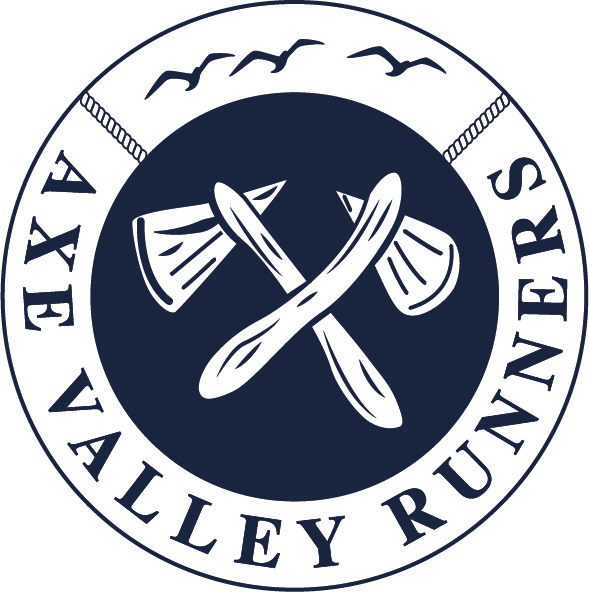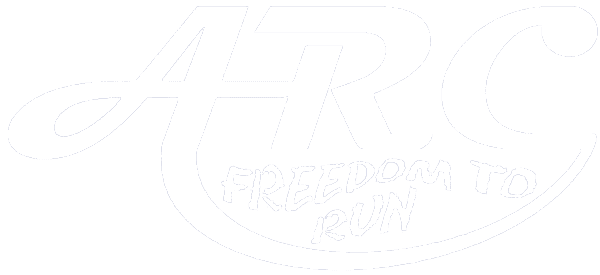Overview
The Race Series is a selection of sixteen races through the year, which have been chosen to support local races and the clubs that organise them, encourage participation and present a competitive challenge. The competition is based upon the best eight performances of the sixteen, which was a deliberate choice to make it a challenging but feasible goal to complete for most of the membership. The competition is between AVR members, and hence the scoring is based on the rank position of members in the race. The scores are absolute values, i.e. not adjusted for age or gender, however the competition is organised into age and gender categories, with prizes awarded to the winner of each to make the competition fair. The idea is that members will know who else is in their category and thus who they are “really racing against”!
Race Types
Most of the races are specified events, i.e. a particular race such as The Grizzly, whereby all runners will be racing each other at the same time. However a few of the events are open i.e. there may be many qualifying events that can be completed at any time in the year and a runner’s best eligible time will be used to determine their ranking.
Categories
It was decided to keep the categories narrow, i.e. every five years after age 40, which results in more frequent changing of who is in each category than ten year categories – you won’t be running against the same people every year!
Your age at the start of the year (midnight) determines your category for the whole year, i.e. if your 40th birthday is on any day in 2023, you’ll be a Senior in the 2023 competition, whereas if you turned 40 on any day in 2022, you’ll be in the 40+ category for the 2023 competition.
Categories are: MS, M40, M45, M50, M55, M60, M65, M70, M75+, FS, F40, F45, F50, F55, F60, F65, F70, F75+
Scoring
The score in each race is determined by rank position and standardised such that the first AVR to finish will get 100 points (the score is a percentile). This means that every race has the same weight in the total (see exception of The Cub below). The formula is:
Score = 100 – (r-1)/N * 100, where r is a runners rank relative to other AVRs only and N is the number of AVRs in the race (i.e. first AVR r=1, last AVR r=N)
So the first AVR will get 100 points and the last will get 100/N points – those who don’t run get zero points so there is always an advantage to running the race even if you come last! The runner who always comes in the middle, let’s call her Michaela Median, will always get about 50 points. Hence all races are evenly weighted, no matter how long they are or how many AVRs participate.
A runner’s highest eight scores of the sixteen races is the total score for the competition, hence a big factor in winning will of course be managing to complete eight races! The choice of events is deliberate to make this a challenge (but by no means impossible) for most members.
In the specified events rank position is simply determined by order of crossing the line, i.e. your actual position in the race (not the net position you might see in the Grizzly results for example, which is based on chip time – this technical distinction is unlikely to influence the results of the competition but is stated here to be clear.)
In the open events the rank will be determined based on official (not watch) times submitted – in this case it should be chip times if available, i.e. you won’t be penalised for doing a massive race like London Marathon and taking ten minutes to cross the start line!
Please note that the organisers reserve the right to change the scoring or calendar of events if they deem necessary during the year, in case of cancellation of events or otherwise, to ensure and fair and inclusive competition.
Races
Specified Races
January
February
March
The Grizzly or The Cub. Based on member feedback we decided to include The Cub as well as The Grizzly but with a 50% weighting. This means the maximum score for The Cub, i.e. for the first AVR home, is only 50 points rather than 100. Please note, the 50% weighting has nothing to do with The Cub being a shorter / easier race than The Grizzly, it is purely because it is not the main race on the day and therefore the level of competition is much lower (most AVRs do the Grizzly). Hence whilst we wanted to recognise the popularity of The Cub, it is important that runners cannot “game” the competition by opting for The Cub instead of The Grizzly and getting an unreasonably high score.
May
June
August
September
October
November
Semi-Open Races
These events are specified races but occur on multiple days, hence a runner’s best time through the year will be used to score.
Open Races
Any Marathon or Half Marathon event can be used as long as it is a proper, open entry race and you run on the official course (i.e. virtual marathons will not be counted.)


